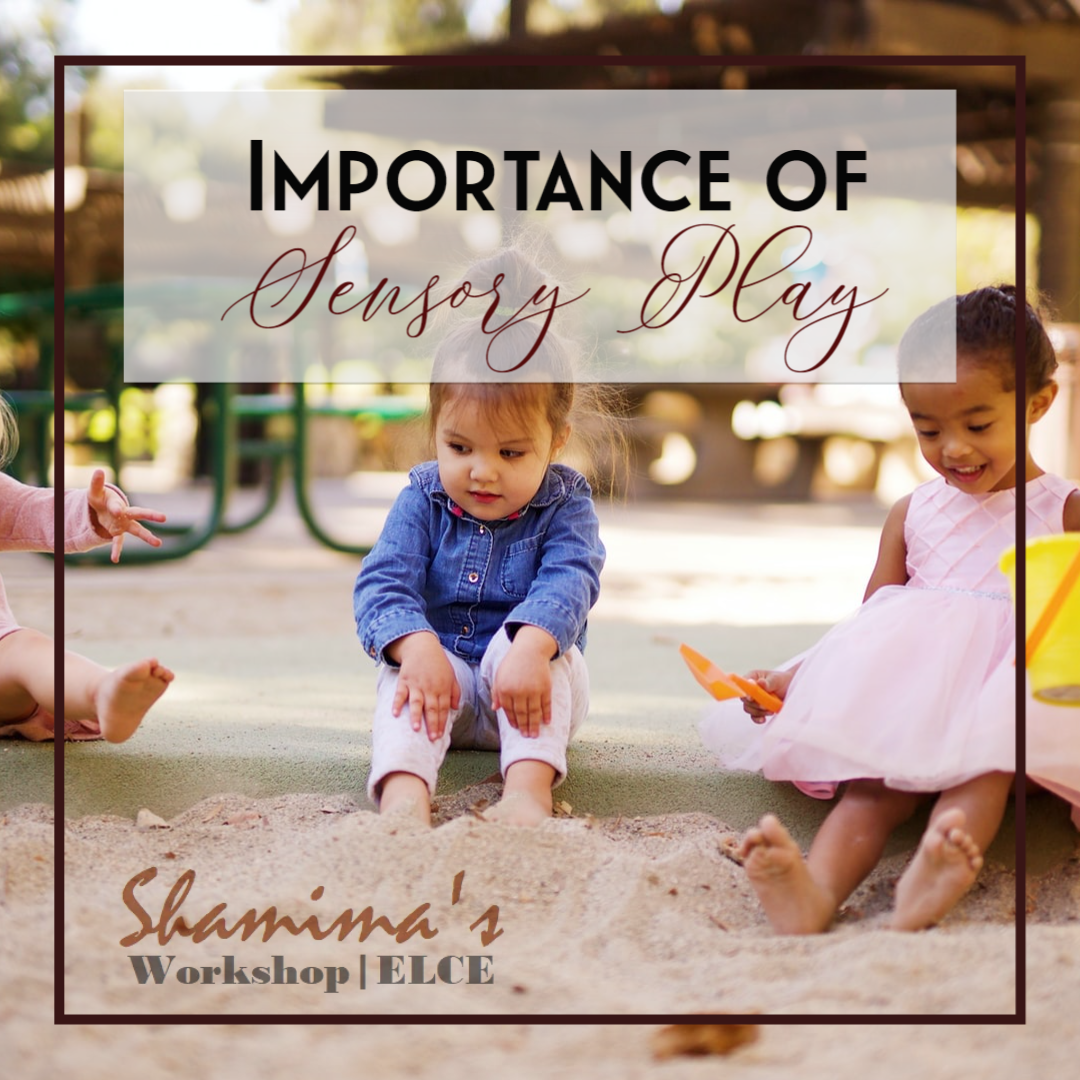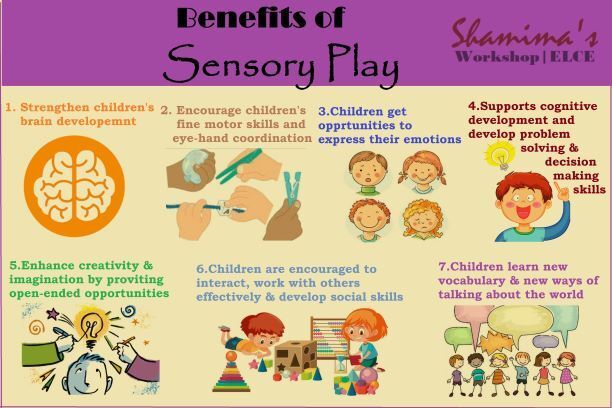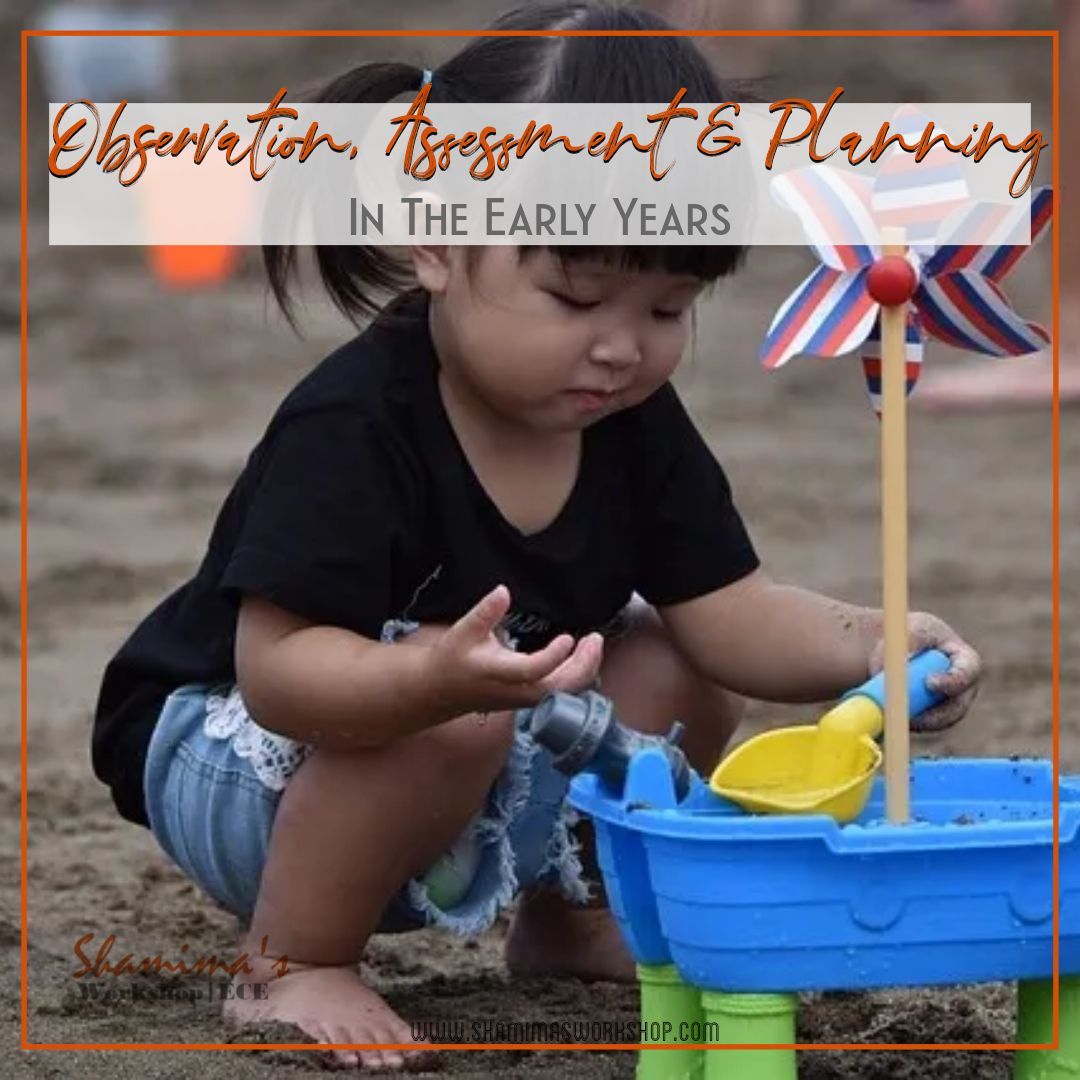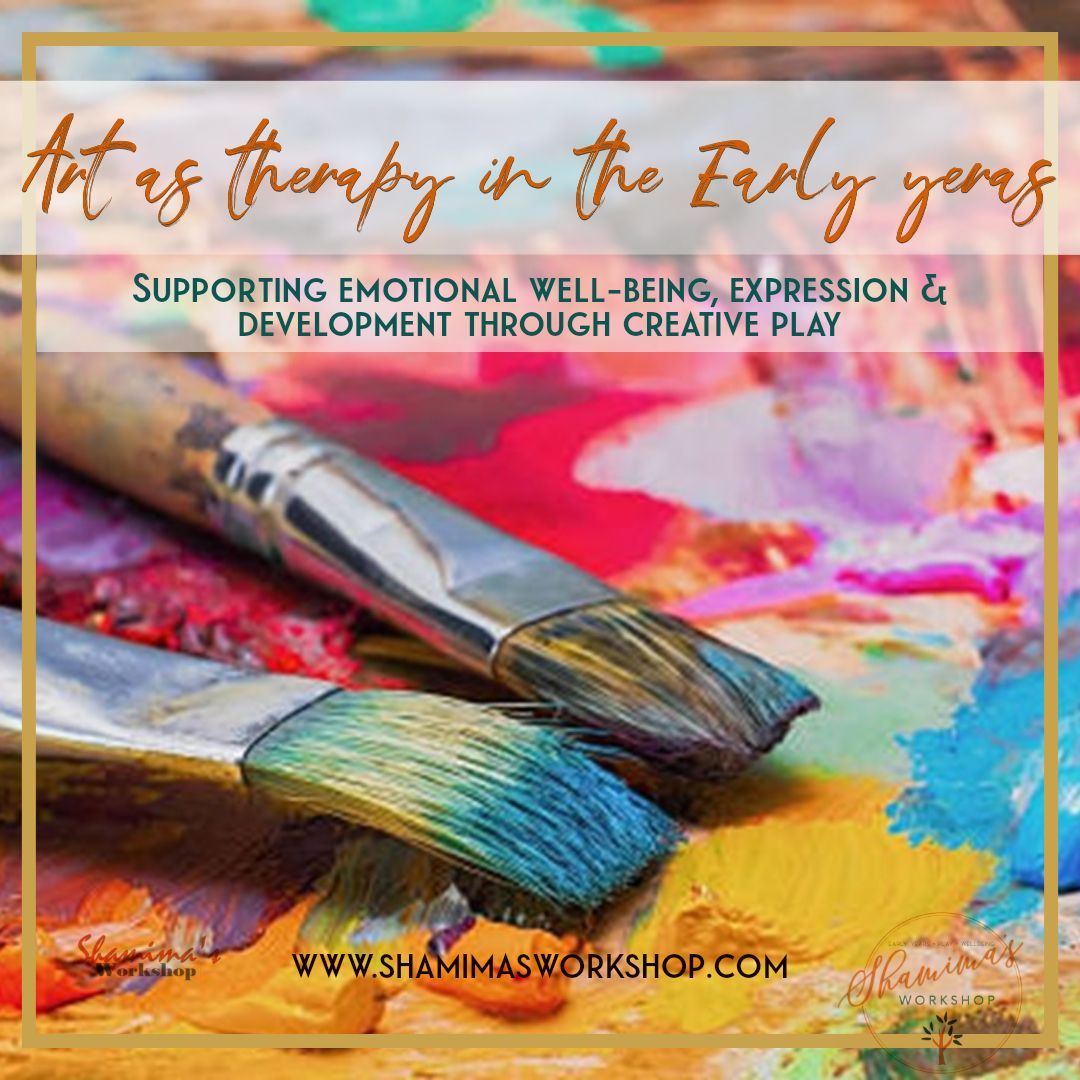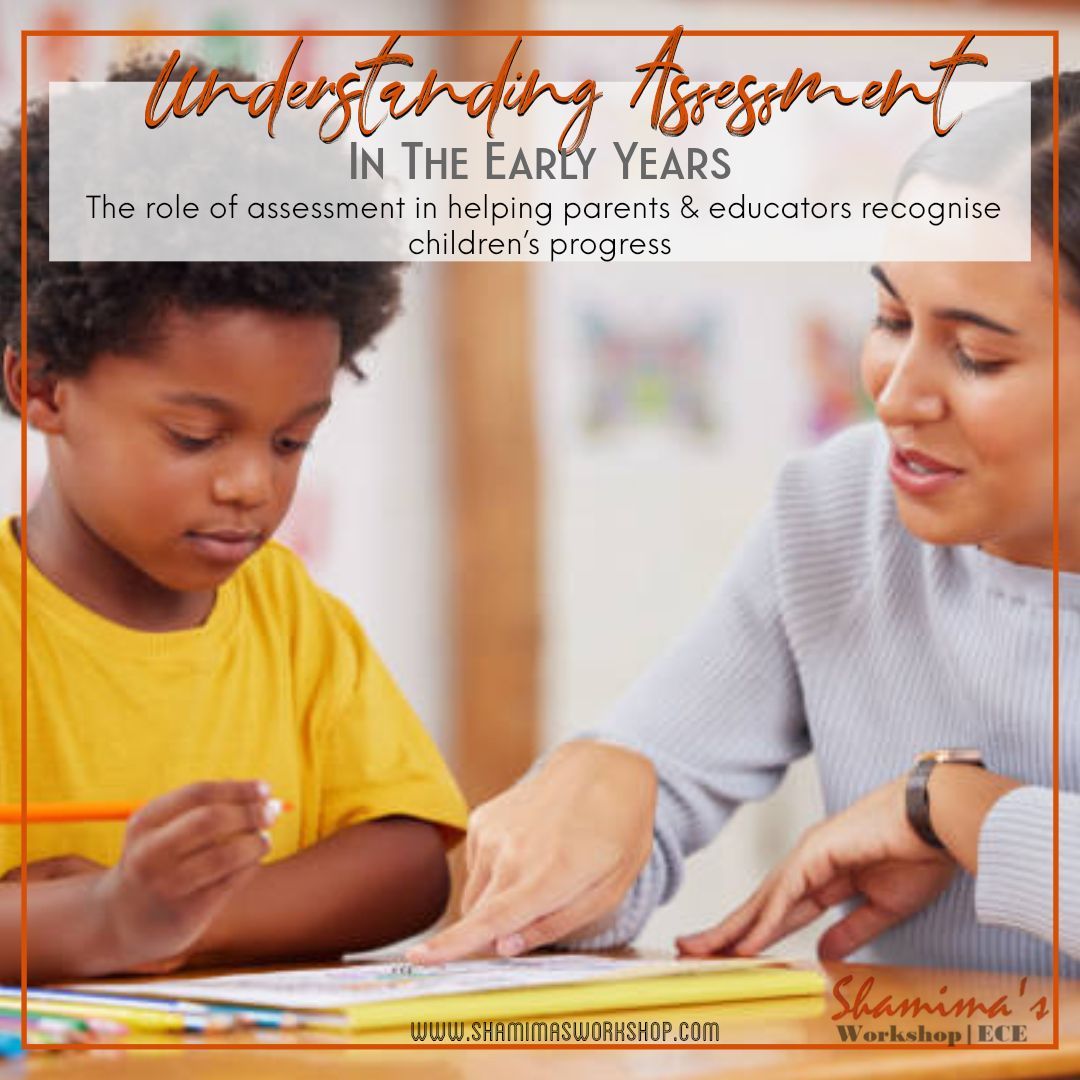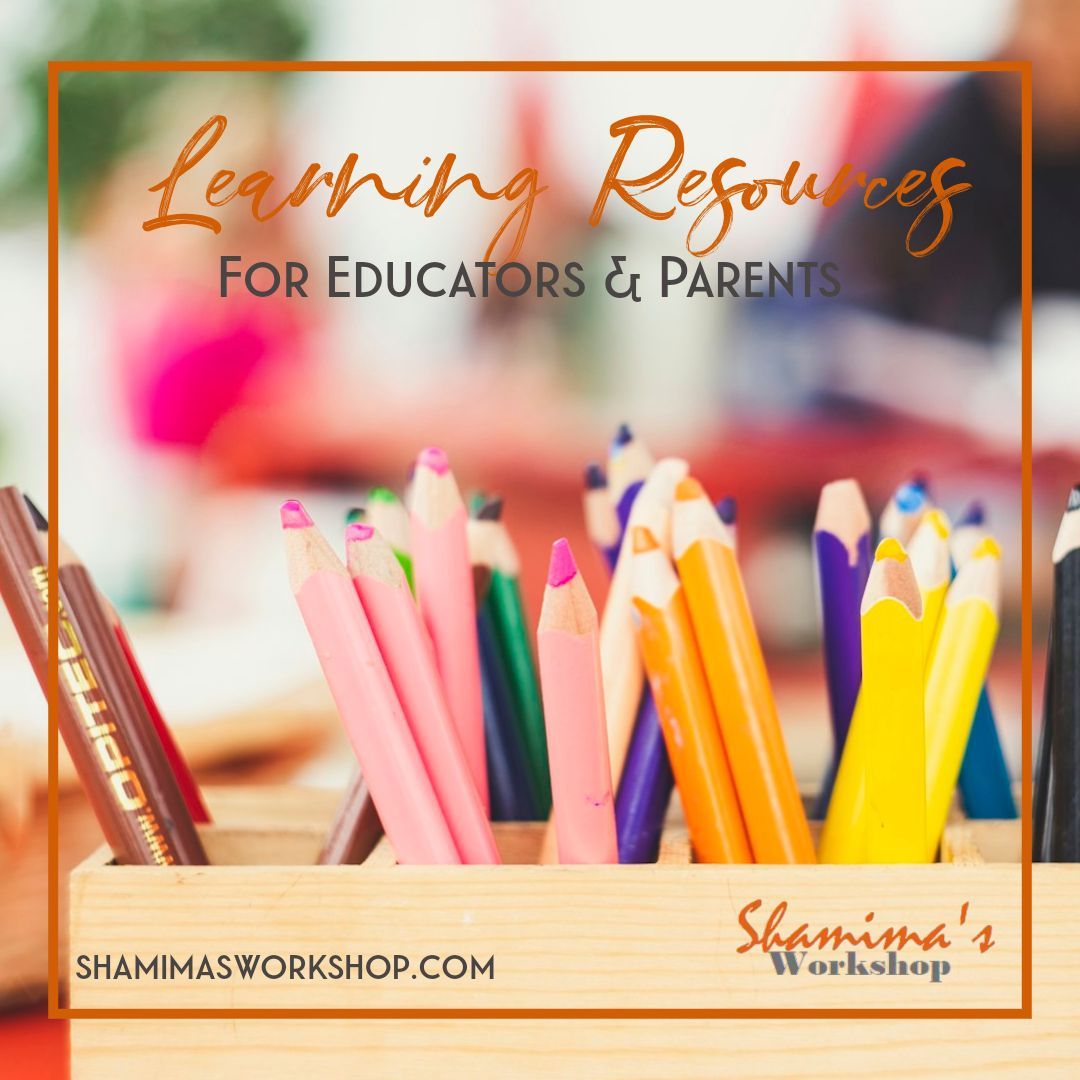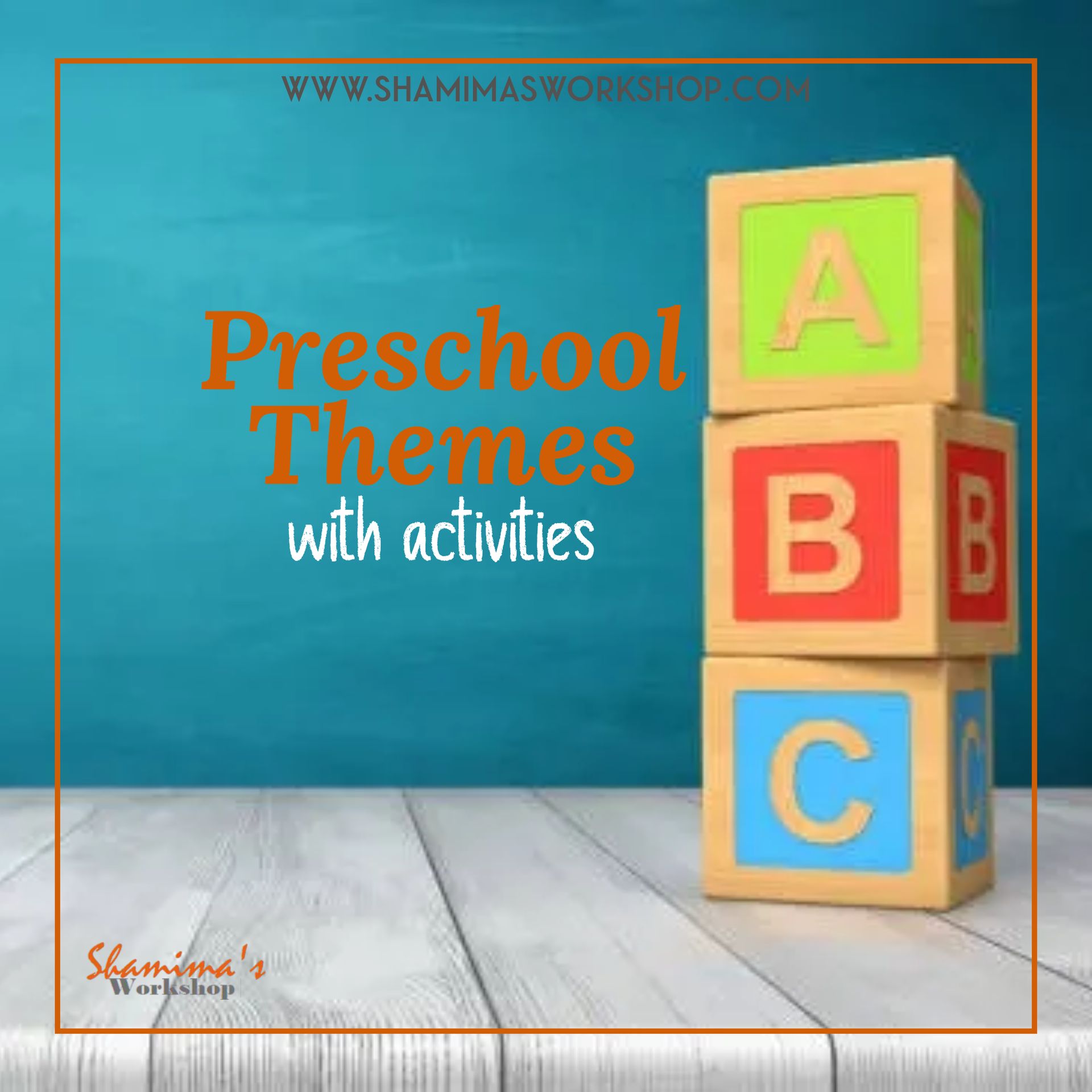Have you ever tried to describe the smell of grass or feel of sand between your toes to your child?
Many things are there which can not be taught by words.... they require touching, tasting, listening, smelling, and feeling to truly experience. That's what sensory play is all about!
What is Sensory Play?
From birth, children are exploring their senses and processing new information. As children grow they begin to make sense of the world around them by exploring new textures, materials, and resources. When you think of sensory play, you immediately picture children play with sand and water or children playing with clay and play-dough, but it is not all about touch; it's also about the other senses. Sensory play is the type of play activities that stimulate children's senses. Most sensory play focuses on stimulating smell, taste, sight, touch, and hearing. Sensory activities facilitate exploration and naturally encourage children to use scientific processes while they play, create, investigate, and explore.
Is sensory play really that important?
Yes! sensory play is important for children's development. Research shows that there are many different ways in which sensory play can benefit a child's development and learning. Here are some of the key benefits of sensory play:
Brain Development:
When a child is engaged in sensory play all of the senses are involved in learning, pathways are created quickly and help strengthen their brain development for learning, which enhances their memory and ability to complete more complex learning tasks.
Physical development: Sensory play encourage fine motor movements and hand-eye coordination by scooping, filling, grasping,and pouring. It also encourages children's gross motor movements as they transport resources from one place to another such as squeezing, pulling, pushing, and throwing.
Cognitive development and problem-solving:
Sensory play supports a child's cognitive development as it encourages children to learn about the textures, properties of different materials, mathematical thinking, spatial awareness, and scientific exploration and discovery. It provides opportunities for learning colours, counting, sequencing, sorting, and constructing. It enhances children's thought process, understanding, and reasoning such as concepts of "sink and float". It also develops problem-solving skills and decision-making skills by experimenting with different objects during sensory play, such as " how to make sand stick together."
Social development:
In the sensory play environment, children are encouraged to interact and work with others effectively, they begin to share their ideas and build new relationships. This helps a child to develop social interaction skills.
Language development:
During sensory play, children learn new vocabulary, new ways of talking about the world, which allows children to talk to each other about what they are doing and to organize their play, which is a great aid for developing language. Creative storytelling through sensory play is a great activity in language development. As children focus on hand-eye coordination tasks while using various materials they develop pre-writing skills.
Emotional development:
During sensory play, children get opportunities to express their emotions and feelings, relieve their stress, provide pleasurable sensations, and also they can be relaxing. These help children to develop their emotions. Sensory play also eliminates the fear and experience of failure, which can negatively impact a child's self-esteem.
Enhance creativity and imagination:
Sensory play can encourage creativity by allowing children to experiment with a large variety of materials in a new and creative way. It provides children with open-ended opportunities that allow their creativity to flourish such as mixing colours of play-dough, making mud, and sand pies. Children do not need fancy toys for sensory play. They enjoy the process without concern for the end product. In fact, challenging children to use things in a new way can encourage their imagination.
How does sensory play help children?
Look, Listen, Touch, Smell, Taste, and five fundamental elements of life that we often take for granted.
These are the senses that children are born with and quickly learn to adapt with as they journey through their initial development phases. Each child will experience these in slightly different ways, and some will, of course, suffer additional challenges or certain limitations to one or more senses, but they will all go through life engaging with the world in large part through our senses. In this day and age, there are lots of activities used to engage young children, many aimed at helping them experiment with the key attributes associated with five predominant senses as they grow in-home and educational environments.
Do not forget to take a look at our sensory play activities and ideas to put these sensory resources into action.
IT's YOUR TURN:
What do you think, how does sensory play help children?
